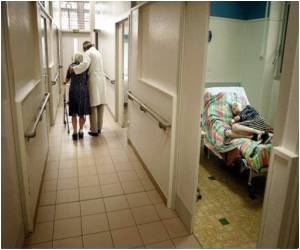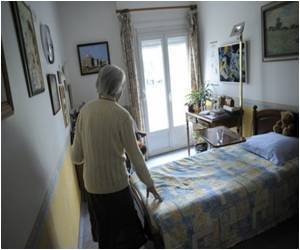Hospital admission rates are significantly higher for dementia patients, shows study.

"Among older persons without dementia, hospitalization for serious illness is associated with subsequent cognitive decline," Dr. Phelan wrote. During an inpatient stay, frail elders, including those with dementia, are at increased risk of delirium, functional decline, and (iatrogenic) complications induced by a physician's activity, manner, or therapy. "Identifying conditions that precipitate hospitalization of elderly individuals with dementia could focus clinical priorities on secondary and tertiary prevention in the outpatient setting and improve health care for this vulnerable and increasing population."
Dr. Phelan and colleagues at the UW and Group Health conducted research to determine whether dementia onset is associated more hospitalization—or with different reasons for it, particularly ambulatory care-sensitive conditions, for which proactive outpatient care might have prevented the need for a hospital stay. This research is based on the joint Group Health-UW Adult Changes in Thought (ACT) study, led by Dr. Phelan's coauthor Eric B. Larson, MD, MPH, Group Health's vice president for research and the executive director of Group Health Research Institute.
The research analyzed hospitalizations among 3,019 participants in the ACT study. ACT studies adults aged 65 years or older enrolled in Group Health, an integrated health care system. All participants had no dementia at the beginning of the study, and those who eventually had a dementia diagnosis as part of dementia screening contributed non-dementia hospitalizations until their diagnosis. Automated data were used to identify all hospitalizations of all participants from time of enrollment in ACT until death, disenrollment from Group Health, or end of follow-up, whichever came first.
During the study period, from February 1994 to December 2007, admissions totaled 5,328. Of the participants, 494 individuals eventually developed dementia, and 427 (86 percent) of those were admitted to a hospital at least once. Of the 2,525 people who remained free of dementia, 1,478 (59 percent) were admitted at least once. Those who developed dementia had 689 admissions before and 714 after dementia diagnosis. The average annual admission rate among participants with dementia was more than twice that of those without dementia. In the fully adjusted model, admission rates were significantly higher among participants with dementia compared with those without dementia for five types of disorders: circulatory, genitourinary, infectious, neurological, and respiratory.
The crude admission rate for ambulatory care-sensitive conditions was higher among those with dementia. Admissions for these conditions accounted for 28 percent of all hospitalizations among those with dementia vs. only 19 percent of all admissions among those who remained dementia free. People who developed dementia had 121 admissions for ambulatory care-sensitive conditions before and 198 after dementia diagnosis. Forty percent (196) of the dementia group had at least one admission for an ambulatory care-sensitive condition, compared with 17 percent (424) of the dementia-free group.
Advertisement
Knowing which ambulatory care-sensitive conditions are most likely to lead to hospitalization may help clinicians focus their differential diagnosis and permit proactive, early management for these conditions among patients with dementia, according to the authors. "Early detection and outpatient management of acute illness when it is still in its early phases," they wrote, "might minimize the need for hospitalization for these conditions and help health care organizations reduce" their rates of admissions for ambulatory care-sensitive conditions—and associated costs.
Advertisement
Source-Eurekalert













